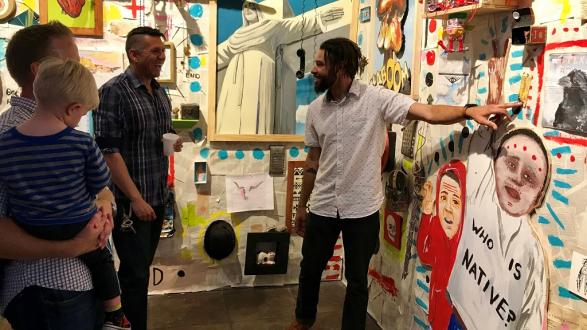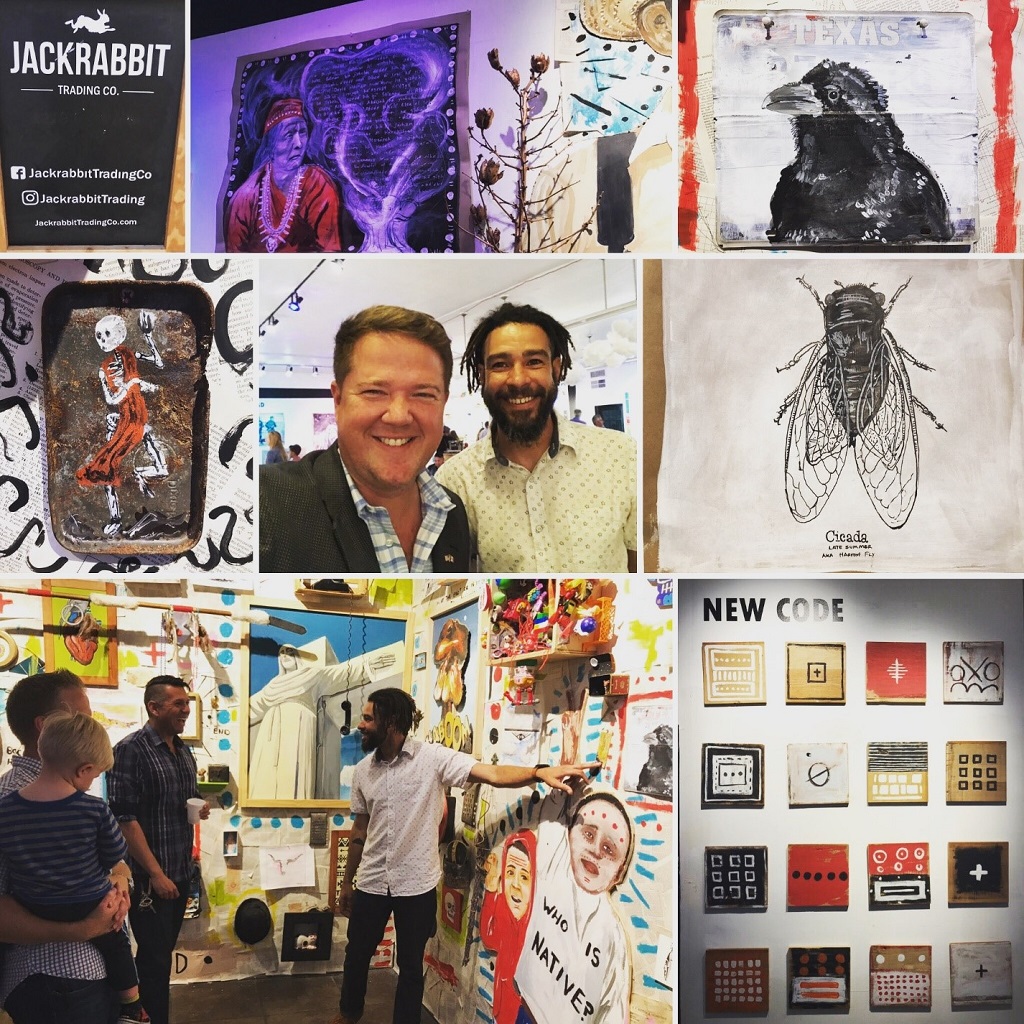One very thoughtful member of the Pacific Council’s recent delegation to El Paso, Texas, and Juarez, Mexico, offered this statement at the end of the final day of our exploration of on-the-ground realities of immigration policy: “I’m leaving with more questions than answers.”
We had two fantastic lead delegates with local expertise who led us through very full days of multiple perspectives: municipal government, a member of Congress, a state senator, nonprofit legal-aid organizations, a tour of an ICE detention and processing facility, and professors from both sides of the border. We received incredible new insight and lots of valuable information, but my fellow delegate summed up perfectly the struggle many of us felt to create meaning out of all we had just experienced.
Pacific Council President and CEO Dr. Jerrold D. Green has often reminded us that no matter how much great content is provided on a Pacific Council delegation, there is also an incumbent responsibility on participants to “go and find knowledge beyond the delegation.” (Green has stated that the lone exception to this rule is in North Korea.) I found myself taking this advice to heart as I sought perspectives from the binational community we were visiting.
Pacific Council President and CEO Dr. Jerrold D. Green has often reminded us that no matter how much great content is provided on a Pacific Council delegation, there is also an incumbent responsibility on participants to “go and find knowledge beyond the delegation.” I found myself taking this advice to heart as I sought perspectives from the binational community we were visiting.
During some of the unstructured time during our final afternoon, I wandered away from the hotel and discovered an art festival featuring artists from both sides of the border expressing themes of connectedness between the sister cities of El Paso and Juarez. I asked several of the artists present if there was someone they could recommend that I meet or speak with who could offer an authentic voice to the area. “Find Jackrabbit,” was the consistent response. “If you want to understand what’s going on right now in this moment, Jackrabbit is the person.”
I quickly learned that “Jackrabbit” was another name for local El Paso artist Jason Brewer. Brewer has spent much of the last two years restoring furniture and creating custom Airbnb spaces for El Paso property owners. I tracked down his furniture restoration studio—only to learn it had moved locations. When I finally arrived at the new space, I discovered it was closed in anticipation of a new art exhibit Brewer was opening that very evening at an art venue called “Power at The Pass.” Serendipity!
After calling the number on the flyer and leaving a message, I quickly received a response from Jackrabbit himself, who invited members of the Pacific Council to his opening that night in a warehouse that had been converted to display local art. I was excited to accept and informed my fellow delegates about the opportunity.
The topic could not have been more timely, as the exhibition was called “Migrations: Dispatches from Far West Texas,” and it was unlike any art exhibit I had ever experienced.
Brewer’s wife greeted us at the door and welcomed us into the show. She shared some of her experiences as a civil rights attorney in the area, and we learned that her professional background is similar to other members of our delegation. We quickly got into a discussion over the policy points we had been exploring over the previous two days. The topic could not have been more timely, as the exhibition was called “Migrations: Dispatches from Far West Texas,” and it was unlike any art exhibit I had ever experienced.
The walls were covered in tapestry of discarded items, salvaged from border crossing areas, abandoned homes, and shelters. Symbols similar to those used by American hobos along the railways during the Great Depression were featured prominently on one wall. Humble signs painted on brown paper seemed to invoke a different era of low-tech advertising for refuge in “Ojinaga.”
After leaving us alone for several minutes to try to make sense of it all, the artist was introduced by his peers, and his energy and positivity about the area immediately became apparent, which is a common characteristic among El Pasoans. Brewer explained that he had chosen to provide for his family over the past few years by working to create and restore furniture, but he felt a strong need to paint and create again recently, so with his wife’s support he began to curate and craft the art in the room for this event.
Jackrabbit's art brought us into a future dystopia where most American metropolises have been severely damaged or destroyed by war and the only safe refuge was the open desert along the Rio Grande.
It became clearer to us that this opening night was Brewer’s introduction to a literary thread around a migration narrative designed to open up our aperture. He skillfully interpreted the symbols and their significance throughout the room, bringing us into a future dystopia where most American metropolises have been severely damaged or destroyed by war and the only safe refuge was the open desert along the Rio Grande.
I like to think of myself as an empathetic person, trying to feel and understand what others are feeling, but sometimes I realize how far I have to go to understand and to see things clearly. As I have felt many times before, I was humbled and inspired by an artist to better understand the reality of others.
Policy cannot create empathy, but empathy can influence policy. In “Migration: Dispatches from Far West Texas,” Jason Brewer (aka Jackrabbit) created meaning for several of us in the audience, which created a deeper empathy for meaningful policy.
Policy cannot create empathy, but empathy can influence policy. In “Migration: Dispatches from Far West Texas,” Jason Brewer (aka Jackrabbit) created meaning for several of us in the audience, which created a deeper empathy for meaningful policy.
Brewer’s simple act of inverting the north-south migration of those seeking refuge and asylum forced the audience to see the reality through a photo-negative lens. It was one of the most powerful things I experienced on the delegation. I was finally able to put myself fully in the position of the displaced from a perspective I could understand.
I want to thank Jason Brewer for his hospitality to members of our Pacific Council delegation by inviting us to his opening night, for introducing us to his family, and to his peer artists in El Paso and Juarez. Most importantly, I want to thank him for returning to the studio to paint and create in a way that informs and transforms perspective, which is what great art is supposed to do. Bravo, Jackrabbit!
_______________________
Aaron Brooks is a member of the Pacific Council on International Policy and a project manager at United Technologies.
The views and opinions expressed here are those of the author and do not necessarily reflect the official policy or position of the Pacific Council.





